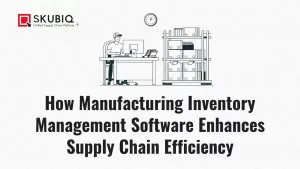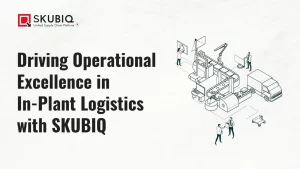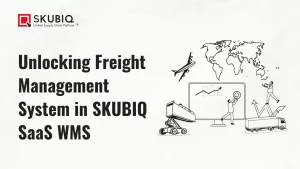Inventory management is a critical aspect of running a successful business. One of the biggest challenges businesses face is minimizing inventory write-offs. These occur when goods become unsellable or are lost, resulting in financial losses for the company. However, with effective inventory management strategies and the right software solutions, businesses can minimize the occurrence of inventory write-offs.
Understanding Inventory Write-Offs
Inventory write-offs happen for various reasons, including damage, theft, or obsolescence. When items cannot be sold or used anymore, they must be written off from the inventory. This process impacts the company’s financial health and can lead to significant losses if not managed properly.
Importance of Inventory Management
Effective inventory management is crucial for minimizing inventory write-offs. It involves tracking and controlling inventory levels to ensure that goods are available when needed and that excess stock is avoided. By maintaining optimal inventory levels, businesses can reduce the risk of write-offs due to overstocking or stockouts.
Streamlining Processes
Streamlining warehouse operations involves identifying and addressing inefficiencies to enhance workflow. This includes optimizing storage layouts, refining picking routes, and automating repetitive tasks. By doing so, businesses can minimize errors, decrease handling time, and boost overall productivity.
Embracing Technology
Utilizing advanced warehouse management software offers real-time visibility into inventory levels, tracks movements, and optimizes space usage. Automation tools like barcode scanners and RFID systems further streamline operations, improving accuracy and reducing errors. By embracing technology, businesses can optimize warehouse management, reducing the risk of inventory write-offs.
Utilizing Software Solutions
In today’s digital age, software solutions play a vital role in inventory management. Warehouse management software provides businesses with real-time visibility into their inventory, allowing them to track stock levels, monitor movement, and identify potential issues that could lead to write-offs. By leveraging these tools, businesses can streamline their operations and minimize write-offs.
Inventory Management Software
Specialized inventory management software provides real-time insights into stock levels, streamlines order processing, and automates inventory tracking. By utilizing such software, businesses can optimize inventory control, minimize stockouts, and reduce the risk of inventory write-offs.
Warehouse Management Systems
Warehouse management systems offer comprehensive tools for organizing warehouse operations, including inventory tracking, order fulfillment, and shipment management. By implementing these systems, businesses can enhance efficiency, improve accuracy, and mitigate the risk of errors or misplaced items, ultimately minimizing inventory write-offs.
Optimizing Warehouse Management
Effective warehouse management is essential for minimizing inventory write-offs. Proper organization, layout, and storage practices can prevent damage and ensure that items are easily accessible when needed. Utilizing warehouse management software can further optimize these processes, improving efficiency and reducing the risk of write-offs.
Leveraging Inventory Data
Inventory data is a valuable asset for businesses looking to minimize inventory write-offs. By analyzing sales trends, demand patterns, and product performance, companies can make informed decisions about inventory levels and purchasing strategies. This data-driven approach helps prevent overstocking of slow-moving items and reduces the risk of write-offs.
Strengthening the Supply Chain
Collaborating closely with suppliers and distributors is essential for minimizing inventory write-offs. A robust supply chain ensures timely deliveries, reduces lead times, and improves overall inventory management. By fostering strong relationships with partners, businesses can minimize disruptions and mitigate the risk of write-offs.
Collaborative Partnerships
By fostering collaborative partnerships with suppliers and distributors, businesses can improve communication, reduce lead times, and enhance overall inventory management. This collaboration ensures timely deliveries, reduces stockouts, and minimizes disruptions, ultimately mitigating the risk of inventory write-offs.
Supply Chain Optimization
Implementing supply chain optimization strategies, such as demand forecasting and inventory optimization, helps businesses align supply with demand. By optimizing inventory levels and improving supply chain efficiency, companies can minimize excess inventory, reduce write-offs, and improve overall profitability.
Continuous Improvement Strategies
Continuous improvement is key to minimizing inventory write-offs. Businesses should regularly evaluate their inventory management processes, identify areas for improvement, and implement changes to enhance efficiency and reduce waste. By embracing a culture of continuous improvement, companies can minimize write-offs and optimize their operations.
FAQs: Frequently Asked Questions
1. What are inventory write-offs?
Inventory write-offs occur when the value of inventory items is reduced to zero due to damage, obsolescence, or theft.
2. How can inventory management software help reduce write-offs?
Inventory management software provides real-time visibility into stock levels, tracking, and forecasting, enabling businesses to make informed decisions and minimize write-offs.
3. What role does warehouse management play in minimizing write-offs?
Effective warehouse management ensures efficient storage, handling, and movement of inventory, reducing the risk of damage and obsolescence.
4. How can businesses leverage inventory data to prevent write-offs?
Analyzing inventory data provides insights into consumer demand, sales trends, and supplier performance, enabling proactive inventory management strategies that minimize write-offs.
5. Why is strengthening supply chain relationships important in minimizing write-offs?
Collaborating closely with suppliers and distributors reduces lead times, improves communication, and minimizes the risk of stockouts, overstocking, and write-offs.
In conclusion, minimizing inventory write-offs requires a comprehensive approach that encompasses effective inventory management, utilization of software solutions, optimized warehouse management, strategic use of inventory data, and strong supply chain relationships. By implementing these strategies, businesses can minimize write-offs, reduce financial losses, and improve overall efficiency.



